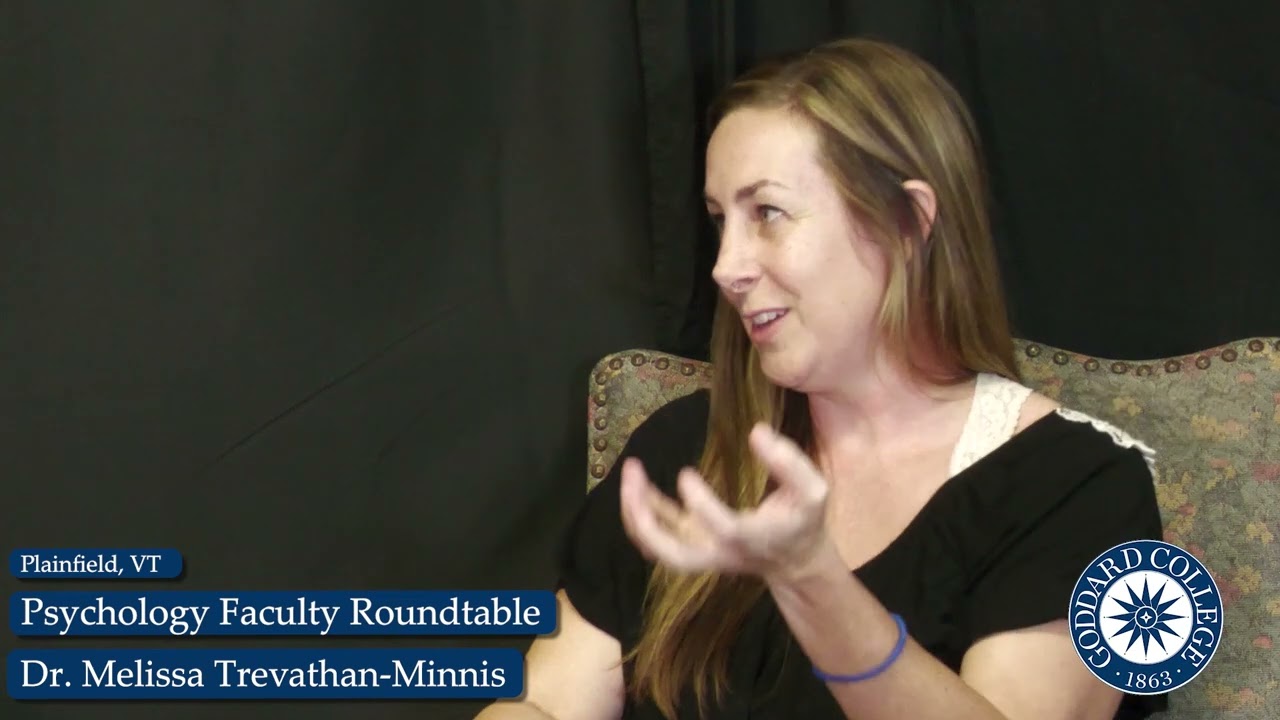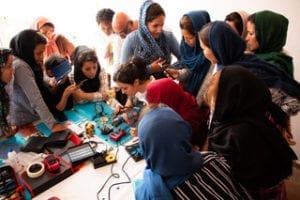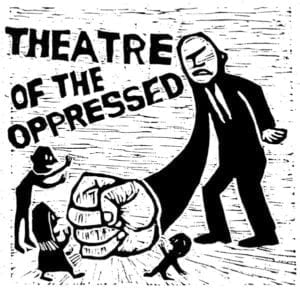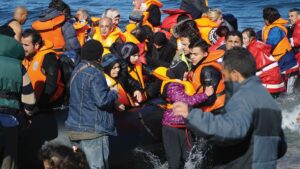When I prepared to travel to my first residency at Goddard five years ago, a colleague who would become a good friend told me that Goddard was like “summer camp for psychologists.” Now, as I reflect on my residency experiences, I realize that he was absolutely right.
The Expressive Arts aspect of residency reminds me of another summer camp for adults that I loved: Penland School of Crafts in North Carolina. In both places I experienced creative and intellectual freedom with fellow students and teachers grounded in a beautiful landscape in the mountains.
I always look forward to finding the students and faculty I already know and catching up on what has been happening in their work and creative lives which is always a source of inspiration. I look forward to meeting new students and finding out what has drawn them to the Psychology and Counseling Program and the Expressive Arts Emphasis.
Days are filled with workshops and seminars, student presentations, library research, meetings with faculty mentors and the planning of courses. My favorite event is the Art Opening. Students hang work on walls, pedestals, in exhibits, and perform works created as an aspect of academic work during the previous semester. In the past, poetry has been read, a portion of a screenplay was presented, videos were screened, and readings were presented from students’ published books. Artwork made by clients has been shared. Seminars provide space for work to be created.
Here is an example of a seminar I will teach at the Fall 2014 Semester Residency:
We will explore and experience varied Multimodal Expressive Arts processes and activities informed by what I learned in recent training at Expressive Arts Florida and at the International Expressive Arts Therapy Association Regional Conference in Antigua, Guatemala. These practices are informed by Rogerian Person Centered psychotherapy theory. We will explore somatic and movement experiences, expressive writing, and the use of the sound of the voice in storytelling and narration. We will also work with art materials including paint, drawing, and clay, and incorporate elements of Mexican traditional and popular art and craft traditions that provide a means for the expression of emotion and feeling, for example gratitude and grief.
- Session One: Focus on experiences of movement from varied theoretical perspectives; explore the voice as sound and as a means of expression using words; work with clay. Please bring a writing journal.
- Session Two: Experiment with Touch Drawing, a painting practice developed by Deborah Koff Chapin. This way of working feels like authentic drawing/painting or drawing from the unconscious. Please bring: a 18″ x 24″” piece of lightweight acrylic plexiglass or whiteboard; an approximately 4″ wide brayer (a paint roller used in printmaking); a pen and writing journal; CDs or downloads of music such as indigenous drumming or songs, chanting, Andean pipe music, etc.
- Session Three: Explore and experiment with traditional Mexican craft practices and rituals utilized to express grief or gratitude. These are the personal altar and the retablo. Please bring: a photo of someone you have lost; objects that were important to that person; a memory of help or change you received for which you are grateful.
In this blog post I present images (above) of Multimodal Person Centered work I did at Expressive Arts Florida. It was a transformational experience for me.
About the Expressive Arts Therapy Emphasis at Goddard
Our Expressive Arts Therapy Emphasis is designed to introduce students to the integration of the Expressive Arts into the practices of counseling and psychotherapy. The focus of the emphasis is two-fold: that of contributing to each student’s development of himself/herself in the process of preparation for the work of counseling and psychotherapy and that of developing a diverse range of practices in Expressive Arts that may be woven into the counselor’s professional work. In addition to these grounding purposes, the Expressive Arts Therapy Emphasis is also intended to contribute to a student’s preparation in working towards becoming registered as a Registered Expressive Arts Therapist (REAT) or as a Registered Expressive Arts Consultant Educator (REACE) with the International Expressive Arts Therapy Association (IEATA).







